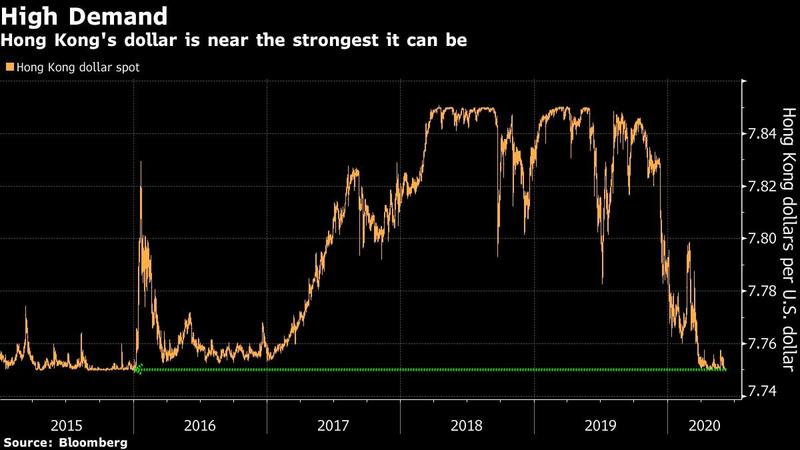
The pegged Hong Kong dollar climbed to the strong end of its permitted trading band late Thursday US time, prompting intervention by the Hong Kong Monetary Authority. Another round occurred Friday during Asian trade. Demand for the local currency has risen as investors seek a slice of highly sought share sales in the special administrative region by mainland tech firms.
READ MORE: HKMA: Financial system remains secure with no huge capital outflows
The HKMA sold HK$4.85 billion (US$626 million) of the city’s currency on Friday, according to its page on Bloomberg. That was its first intervention since April 27. The aggregate balance, a measure of interbank liquidity, will increase to almost HK$100 billion from Tuesday, the highest since August 2018.
The aggregate balance, a measure of interbank liquidity, will increase to almost HK$100 billion from Tuesday, the highest since August 2018
Mainland money keeps flowing into Hong Kong’s stock market through exchange links with Shanghai and Shenzhen. Eligible investors, which can include brokers and insurers or individuals with at least 500,000 yuan (US$70,000) in their trading accounts, purchased another HK$775 million on average each day this week. They had already been net buyers of Hong Kong stocks for 35 consecutive weeks.
Plans from some of the mainland’s biggest companies to sell shares in the HKSAR are increasing the demand for cash, helping boost the local dollar. NetEase this week raised about US$2.7 billion in Hong Kong, with local media saying that that retail portion was more than 130 times oversubscribed. Online retailer JD.com Inc started taking orders for its shares on Friday, and Yum China Holdings Inc has also hired banks for a listing this year.
ALSO READ: HK finance secretary says no plans to change US dollar peg
As mainland money pours in, mainland officials have pledged to maintain Hong Kong’s standing as an international financial center. In a statement issued late Thursday, the People’s Bank of China said it will work to ensure “Hong Kong’s economic and financial stability and prosperity.”
A rally in stocks is also helping boost sentiment, with the Hang Seng Index logging its best week since April 2015.


